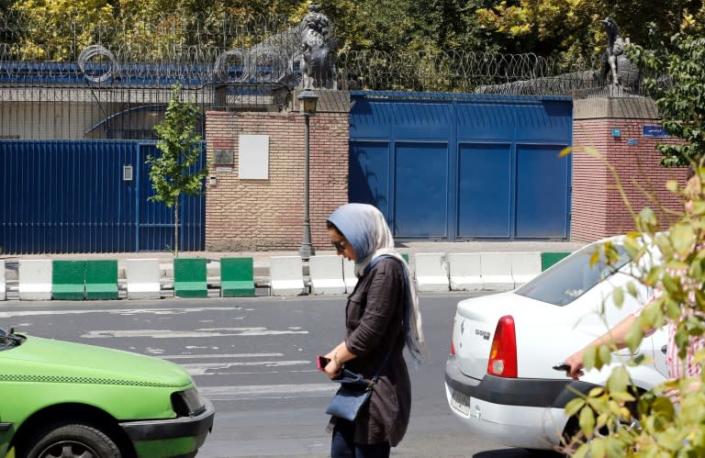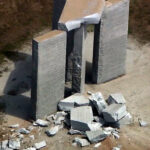
Iran’s Revolutionary Guards arrested several foreign diplomats including a Briton, accusing them of “spying”, the Fars news agency and state television said Wednesday.
But the British government quickly denied that any of its personnel had been arrested, describing the reports as “completely false”.
The developments coincide with heightening tensions between Tehran and world powers over long-stalled attempts to revive a 2015 nuclear deal and a recent uptick in confirmed detentions of Western nationals in the country.
“The Revolutionary Guards’ intelligence service identified and arrested diplomats from foreign embassies who were spying in Iran,” Fars said, adding that a British diplomat was subsequently expelled from the country.
State television however reported that the Briton, identified as Giles Whitaker, the UK government’s deputy head of mission in Iran, was only expelled from “the area” where the diplomats had been arrested in central Iran.
State television accused him of “carrying out intelligence operations” in military areas.
Video showed images of a man presented as Whitaker speaking in a room.
A state TV journalist said the diplomat “was among those who went to the Shahdad desert with his family as tourists”, referring to an area in central Iran.
“As the images show, this person took photos… in a prohibited area where at the same time a military exercise was taking place,” the broadcaster said.
Britain’s government categorically denied the reports.
“Reports of the arrest of a British diplomat in Iran are completely false,” a foreign ministry spokesman said in London.
– Detainees ‘took soil samples’ –
The number, nationality and date of arrest of the other diplomats detained was not immediately clear.
But state television said that “apparently Israel wants to open a file on the possible military dimension of Iran’s nuclear program, using nationals from third countries who are linked to foreign embassies,” it charged.
Israel is staunchly opposed to the 2015 nuclear agreement between Iran and world powers, perceiving it as a threat to its security.
State television also showed images of a man it identified as “Maciej Walczak, head of the microbiology department at the Nicolaus Copernicus University in Poland”.
“This university is linked to the Zionist regime,” it said, referring to Israel.
Walczak, whose nationality was not specified, “entered Iran with three other people in the context of scientific exchanges but he went to the desert region of Shahdad as a tourist while missile tests were being carried out”, state television said.
It said he took rock and soil samples.
Fars meanwhile said those arrested took rock samples in the desert for “espionage” purposes.
State television presented another man, identified as “Ronald, the spouse of the Austrian embassy’s cultural adviser” who it said went to a village in the Damghan area east of Tehran and “took rock samples”.
He was also accused of “filming a military area in Tehran,” the broadcaster said.
– Nuclear impasse, other detentions –
The US walked out of the Iran nuclear deal in 2018 under then president Donald Trump, who proceeded to reimpose biting sanctions on Tehran, prompting the latter to step away from many of the nuclear commitments it made under the accord.
Iran has held direct talks with remaining parties to the deal — and indirect talks with the US — since April 2021 in a bid to restore the deal, but those negotiations have been at an impasse since March.
Qatar last week hosted indirect talks in Doha in a bid to get the Vienna process back on track, but those discussions broke up after two days without any breakthrough.
Over a dozen Western nationals are held in Iran in what activists argue is a policy of hostage-taking aimed at extracting concessions from the West.
Belgium’s parliament on Wednesday approved a controversial prisoner-swap treaty with Iran in a first reading of a text that still has to be submitted to a full vote to be ratified.
Also Wednesday Iran accused a French couple detained in May while on holiday of allegedly “undermining the security” of the country, the judicial authority said.
The French government has condemned their arrest as “baseless” and demanded their immediate release.
Last month Amnesty International called on the British government to investigate Iran’s six-year detention of dual national Nazanin Zaghari-Ratcliffe, deploring it as “an act of hostage-taking”.
She was released home to the UK along with another detainee early this year, after the UK agreed to pay a longstanding debt to Tehran.
ap/lg/dwo




